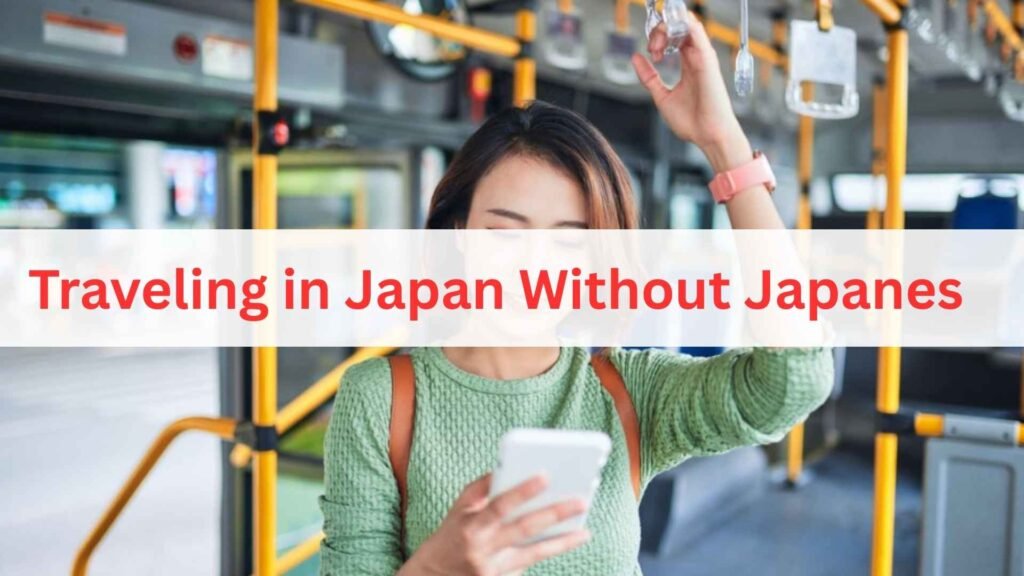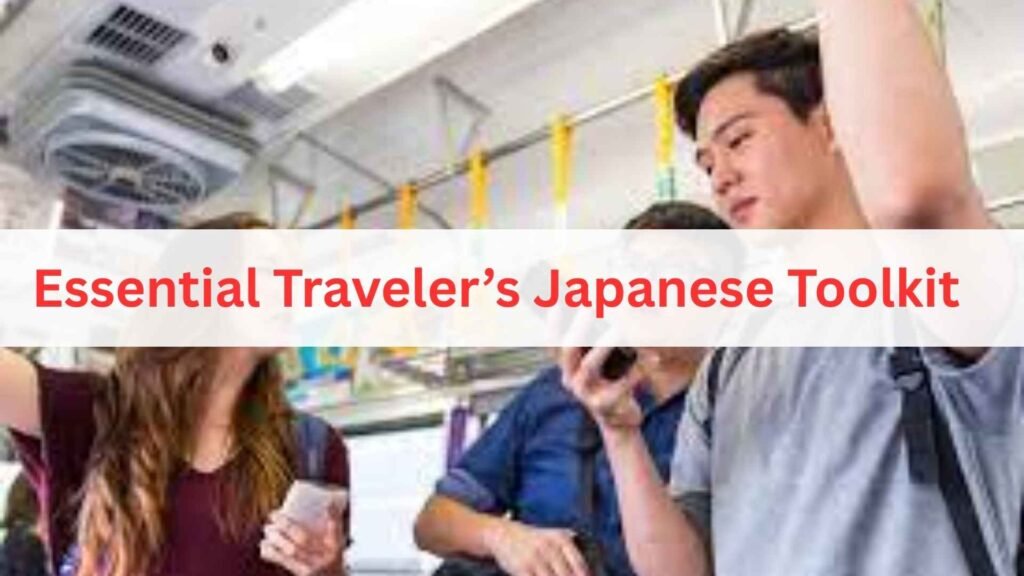Traveling to Japan is a dream for many. From savoring fresh sushi and admiring cherry blossoms to experiencing the speed of the iconic shinkansen, Japan offers an unforgettable adventure. But what if you don’t speak a word of Japanese? Will that limit your trip? Fortunately, Japan is one of the most tourist-friendly non-English-speaking countries. Major cities like Tokyo, Kyoto, and Osaka offer English signage, helpful locals, and technology like Google Translate and travel apps that make navigating simple. Even so, learning a few basic Japanese phrases can enrich your experience, show respect for the culture, and make interactions smoother. In this guide, we’ll explore whether learning Japanese is necessary, essential phrases for travelers, and practical tools to navigate Japan confidently and enjoyably.
Traveling in Japan Without Japanese: What to Expect
Good news: Japan is one of the most tourist-friendly non-English-speaking countries. Even without language skills, millions of travelers enjoy Japan every year. Here’s why: Click here

- Technology Makes Life Easier: Apps like Google Translate, Japan Travel by Navitime, and even camera translation tools can convert menus, signs, and directions instantly.
- English-Friendly Signage: Major cities such as Tokyo, Osaka, and Kyoto have Romanized lettering (romaji) in subway stations, airports, and tourist spots.
- Helpful Locals: Japanese people are renowned for their politeness. Even with minimal English, many will go out of their way to help you find your destination.
- Simple Transactions: Ordering food or buying tickets is often as easy as pointing at a picture. Vending machines, ticket machines, and bakeries often have visual guides.
Bottom line: For typical sightseeing, you’ll be perfectly fine. But if you want a richer experience, even a small effort in learning Japanese can make a big difference.
Why Learning Some Japanese is Worth It
Fluency isn’t necessary, but a few essential phrases can enhance your trip immensely:
- Shows Respect: Making an effort demonstrates cultural appreciation and fosters positive interactions.
- Unlocks Authentic Experiences: Venturing into local markets, small family-run restaurants, or rural towns often means English is limited. Knowing basic phrases can open doors.
- Boosts Confidence: Simple phrases like “Where is the train?” or “Thank you” empower you to explore more confidently.
Essential Traveler’s Japanese Toolkit
Here’s a practical mini-guide to the most useful Japanese for tourists. Think of it as a JLPT N5 crash course for travelers.

1. Polite Magic Words
- Arigatou gozaimasu – Thank you (polite)
- Sumimasen – Excuse me / I’m sorry / Pardon me
- Konnichiwa – Hello (daytime)
- Hai – Yes
- Iie – No
- Onegaishimasu – Please (used in specific contexts like ordering or asking for help)
2. Transportation & Navigation
- ~ wa doko desu ka? – “Where is ~?”
- Toire – Bathroom
- ~ ni ikitai desu – “I want to go to ~”
- Ikura desu ka? – “How much is it?”
- Kippu – Ticket
3. Dining Essentials
- Menu, onegaishimasu – “Menu, please”
- Kore, onegaishimasu – “This, please”
- Omizu, onegaishimasu – “Water, please”
- Okanjou, onegaishimasu – “Check, please”
- Itadakimasu! – Said before eating; shows gratitude for the meal
- Gochisousama deshita – Said after eating; thanks for the meal
(Internal Link: For detailed dining tips, see our post on How to Order Food in Japan: A Guide for Travelers) Tokyo Experiences 2025
Cultural Nuances Beyond Language
Japanese culture values gestures and subtlety:
- Bowing (Ojigi): A simple nod with a slight bend shows respect.
- Cash Culture: Many small shops prefer cash. Knowing numbers helps, but calculators are widely used.
- Quiet is Polite: Avoid loud conversations on trains or public spaces. It’s considered disrespectful.
Understanding these cultural norms makes your trip smoother and more meaningful.
When You Should Consider Learning More
Invest more time in Japanese if:
- You plan to travel extensively in rural areas.
- You’re staying long-term or doing a working holiday.
- You want to participate in cultural workshops like tea ceremonies, pottery classes, or staying at temples.
- You wish to connect deeply with locals beyond transactional conversations.
Formal study, like JLPT N5, is a good starting point to cover basic reading, writing, and speaking for everyday scenarios.
(Internal Link: Is the JLPT Test Worth It for Travelers and Beginners?) Japan Tourist Visa for Indians
Step-by-Step Study Plan for Travelers
1–2 months before travel: 10–15 min daily on apps, practice listening, download essential translation apps, prepare phrase cheat sheet.

1-2 Months Before Travel:
- Spend 10-15 minutes daily on apps like Duolingo or Memrise. Focus on speaking and listening.
Download Essential Apps:
- Google Translate – Download the Japanese offline language pack.
- Japan Travel by Navitime – Maps and transportation guides.
- Imiwa? – Offline Japanese dictionary.
Practice Listening:
- Watch Japanese travel vlogs to familiarize yourself with sounds and pronunciation.
Prepare a Cheat Sheet:
- Write down key phrases on a notecard for quick reference.
(Internal Link: Top 10 Essential Apps for Traveling in Japan)
FAQs
Q1: Can I travel to Japan without speaking Japanese?
Yes! Japan is very traveler-friendly, especially in major cities like Tokyo, Kyoto, and Osaka. Tourist attractions, public transport, and restaurants often have English signage, menus, and announcements. Apps like Google Maps, Google Translate, and navigation apps for trains make it easier to get around. However, outside major cities—especially in rural areas—English is less common, so knowing a few basic Japanese phrases can make your trip smoother and more enjoyable.
Q2: What are the most useful Japanese phrases for travelers?
Even learning a handful of phrases can make a huge difference. Key expressions include:
- “Arigatou gozaimasu” – Thank you (polite)
- “Sumimasen” – Excuse me / Sorry / Getting attention
- “Konnichiwa” – Hello / Good afternoon
- “Hai” – Yes
- “Iie” – No
- “O-negai shimasu” – Please
- “Toire wa doko desu ka?” – Where is the restroom?
Practicing these will help with day-to-day interactions like ordering food, asking directions, or shopping. Locals often appreciate any attempt to speak Japanese, even if it’s just a few words.
Q3: Are translation apps reliable in Japan?
Yes, modern translation apps are extremely useful for travelers. Google Translate, DeepL, and similar apps can instantly translate menus, signs, and simple conversations. Some apps even allow you to take pictures of Japanese text and get real-time translations. While they aren’t perfect, they’re reliable enough for navigating, dining, and basic communication.
Q4: Do I need to learn kanji for a trip?
Not necessarily, especially for short-term travel. Japanese has three writing systems: hiragana, katakana, and kanji. Kanji can be challenging for beginners, so focus on basic spoken phrases and navigation words. If you learn a few key kanji for common places—like 駅 (eki – station) or トイレ (toire – toilet)—it can be very helpful.
Q5: Is English spoken in rural Japan?
English is far less common in rural areas than in big cities. While younger generations may know basic English, many locals in small towns or countryside regions may not speak it. Learning essential Japanese phrases or using a translation app will make rural travel much more convenient and enjoyable.
Q6: Do I need cash in Japan?
Yes. While credit and debit cards are increasingly accepted in big cities and large establishments, cash is still widely used across Japan, especially in small shops, local restaurants, temples, and rural areas. ATMs at convenience stores like 7-Eleven and Lawson are traveler-friendly and allow international cards. Always carry enough cash for day-to-day expenses outside major tourist hubs.
Q7: Will locals appreciate me speaking Japanese?
Absolutely. Even simple attempts at Japanese like saying “Arigatou gozaimasu” (thank you) or “Sumimasen” (excuse me) go a long way. Locals often respond warmly to travelers who make an effort to communicate in their language. It can improve your experiences in restaurants, shops, temples, and public transport.
Q8: Can I learn enough Japanese in a month?
Yes! If you dedicate time every day, you can learn essential phrases and vocabulary for travel. Focus on:
- Greetings and polite expressions
- Directions and transportation
- Food and dining phrases
- Shopping and numbers
Even learning 50–100 key phrases can make a huge difference in your comfort and confidence while traveling.
Q9: Should I consider JLPT study for my trip?
For travelers interested in deeper language skills, JLPT (Japanese Language Proficiency Test) N5 is ideal. N5 covers basic vocabulary, grammar, and everyday situations like greetings, ordering food, and asking directions. Preparing for JLPT N5, even partially, can give you a better understanding of Japanese culture and make interactions smoother, especially if you plan to travel extensively or visit less touristy regions.
Q10: Where can I learn Japanese before visiting Japan?
TLS – The Japanese Language School is a great option for beginners and travelers. They offer courses tailored for practical travel use, focusing on speaking, reading basic signs, and understanding Japanese culture. With flexible schedules and experienced instructors, you can start learning key phrases before your trip.
Conclusion
Do you need Japanese to visit Japan? Technically, no. Modern infrastructure and technology make it possible to travel without speaking a word.
But learning a little Japanese transforms your trip from ordinary to extraordinary. Small gestures like saying “arigatou gozaimasu” or “itadakimasu” leave lasting impressions, unlock cultural experiences, and make you feel confident navigating this beautiful country. Scholarship Opportunities in Japan
Pro Tip: Start learning today. Even basic Japanese skills will make your journey richer and more memorable.Start learning Japanese today and make your Japan trip unforgettable. Join TLS – The Japanese Language School for beginner-friendly courses and expert guidance. Call +91 8700956038 to enroll now.

